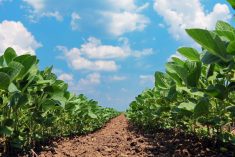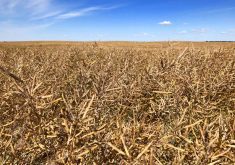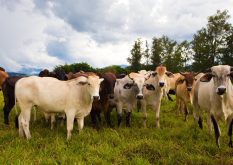Reuters – Brazil’s state-run oil company Petrobras will start testing new renewable diesel based on co-processed edible oils with customers in January, while awaiting regulatory approval to sell it commercially, the company’s refining director told Reuters.
The tests are expected to take about six months and will be backed by a fuel distributor and a bus fleet owner, whose names are yet to be revealed, Petrobras’s refining director, Rodrigo Costa, said.
The oil giant had successfully tested the renewable diesel production system at its Repar refinery in mid-2020, but it sees the new testing phase as important in confirming its effectiveness.
Read Also

Trade uncertainty, tariffs weigh on Canadian beef sector as market access shifts
Manitoba’s beef cattle producers heard more about the growing uncertainty they face as U.S. tariffs, and shifting trade opportunities, reshape their market.
Repar is currently capable of producing 114,000 tonnes per year of renewable fuel based on co-processed soybean oil.
The move is part of Petrobras’s plan to insert renewable fuels based on new technologies into Brazil’s market. The company expects to invest US$600 million in new production units from 2022 to 2026, despite acknowledging they still heavily depend on regulatory approval.
The investments include adapting the Paulinia and Cubatao refineries so that both could produce a total of 505,000 tonnes of renewable fuel per year.
Most of the money, however, would go toward building a 100 per cent renewable biorefinery capable of producing 500,000 to 800,000 tonnes per year, which is expected to start operating in 2027 in a location yet to be determined, Costa said.
“The consumer and the market are demanding a lower carbon footprint, an increasingly cleaner product, and refining is also changing in line with it,” he said. “Biorefining is certainly a transformation that we understand as inevitable.”
Costa said the natural gas sector is also important for the energy transition. Petrobras expects to start operating a natural gas processing unit located in Itaborai, which will include a pipeline to bring gas from the pre-salt area, by the end of the first half of 2022.














